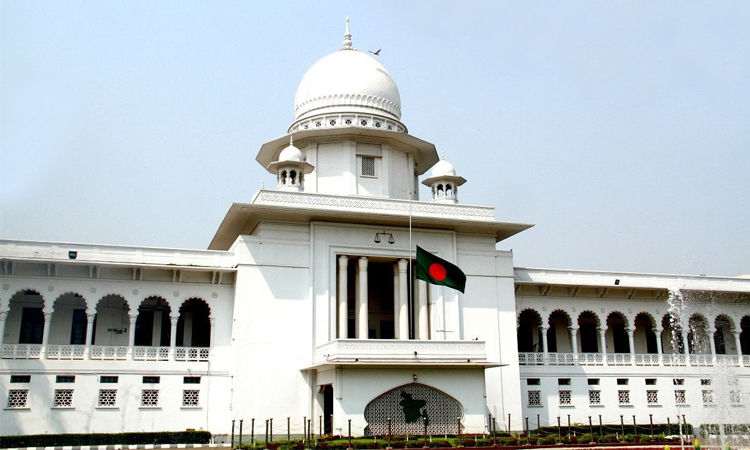News Flash
News Flash

DHAKA, March 17, 2025 (BSS) - The Appellate Division of the Supreme Court (SC) today upheld a High Court order that had asked the authorities concerned to transfer the two cases lodged over the sensational gang rape of a newlywed girl at Sylhet MC College, to Speedy Trial Tribunal for quick disposal.
A three-member apex court bench headed by Justice Md Ashfaqul Islam passed the order as the state filed a petition for non-prosecuting its leave to appeal petition filed against the High Court order.
"Dismissed as being non-prosecution," said the Appellate Division order.
Additional Attorney General Mohammad Arshadur Rouf moved the state plea before the apex court, while Barrister M Abdul Qaium, Barrister Omar Faruk, and Barrister Kamrun Nahar Dipa were present for a writ petition filed earlier in this regard.
"Today's order has cleared all the legal bars from transferring the cases to speedy trial tribunal within 30 days," Barrister Abdul Qaium said.
A couple of leaders and activists of now banned Bangladesh Chhatra League (BCL) raped the victim at Sylhet MC College hostel on the night of September 25, 2020. The victim's husband later filed the case with Sylhet Shah Poran Police Station. Police on December 3, 2020, filed the charge sheet against eight in the rape case.
Sylhet Women and Children Repression Prevention Tribunal on January 17, 2021, framed charges in the rape case.
The eight accused are - Saifur Rahman, Shah Mahbubur Rahman Roni, Tarekul Islam, Arjun Lashkar, Ainuddin alias Ainul, Misbaul Islam alias Rajan, Robiul Islam and Mahfujur Rahman alias Masum.
The High Court on December 15, 2022, ordered authorities concerned to transfer the two cases lodged over the sensational gang rape of a newlywed girl at Sylhet MC College, to the Speedy Trial Tribunal for quick disposal. The court had also ordered to issue a gazette notification within 30 days in this regard.
A High Court division bench of Justice Farah Mahbub and Justice Ahmed Sohel passed the order, after holding a final hearing on a rule issued in this regard earlier.
The court came up with the order after holding a writ petition filed by the victim's husband.
The High Court on August 16, 2022, issued the rule after holding a hearing on that writ.